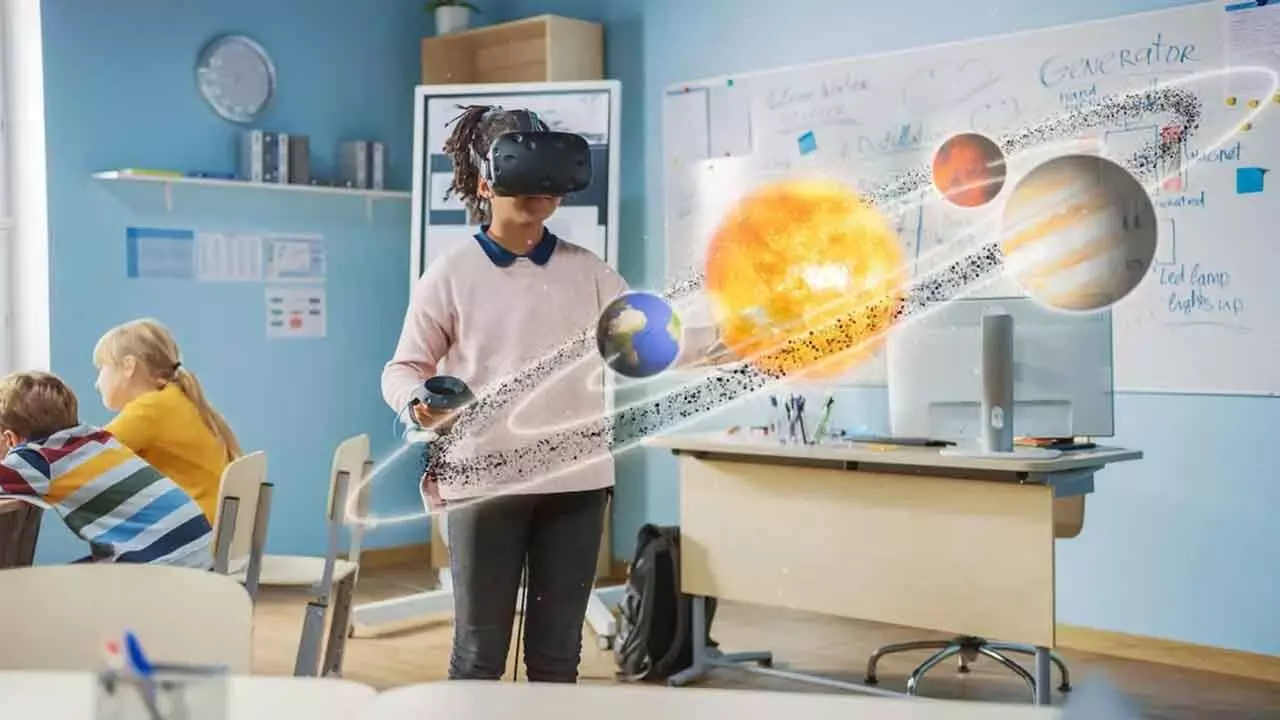AR, VR will fuel new era in higher education
The integration of virtual reality and augmented reality into higher education represents a significant leap forward in the way knowledge is imparted and acquired
AR, VR will fuel new era in higher education

VR and AR are not just enhancing educational experiences but are fundamentally changing how we learn and understand complex subjects. These tools are paving the way for a more immersive and personalised educational journey, opening new horizons for students and educators alike
As higher education rapidly evolves to meet the needs of a digital age, virtual reality (VR) and augmented reality (AR) are emerging as pivotal technologies, reshaping the learning landscape in profound ways. These innovative tools are transforming traditional educational methods into immersive, interactive experiences that engage students like never before.
Talking to Bizz Buzz, Diwakar Chittora, Founder & CEO of Intellipaat, said, “The revolutionary impact of integrating innovative learning tools such as VR and AR into educational programmes is revolutionising modern education. These advanced technologies transform the learning experience by providing immersive, hands-on training that goes beyond traditional methods. VR and AR enable us to create interactive simulations and visualisations, making complex concepts more accessible and engaging for students.”
Imagine a future where students can do VR headsets to explore ancient civilisations or traverse the cosmos without leaving their classrooms. Such experiences are no longer confined to science fiction but are becoming a reality in educational institutions. VR allows students to engage with subjects in a fully immersive environment, making abstract concepts tangible and easy to understand. A chemistry student might mix virtual chemicals in a simulated lab, while a geography student could study climate patterns by exploring virtual landscapes across different time periods, experts say.
Vaibhav Gupta, Chief Marketing Officer & Co-Founder of Ischoolconnect, underscored the transformative nature of these technologies. He said: “We see virtual reality and augmented reality as transformative tools in higher education. These technologies have the potential to revolutionise the learning experience by making it more immersive, interactive, and engaging than ever before. In VR, students can explore realistic simulations of environments that are otherwise inaccessible or impractical to visit physically.”
For instance, a history student can walk through ancient ruins or attend a virtual lecture in a renowned museum, enhancing their understanding through direct interaction. AR, on the other hand, overlays digital information onto the real world, offering students real-time insights and interactive experiences, he said.
AR complements the immersive experience of VR by enhancing the real world with digital overlays. This technology brings textbooks and lectures to life, providing students with interactive and real-time information. For example, an art student might use AR to view 3D models of famous sculptures in their own space, while a medical student could receive instant feedback and annotations during anatomy dissections. AR helps bridge the gap between theoretical knowledge and practical application, making learning more interactive and contextually relevant.
The benefits of VR and AR extend beyond the classroom, democratising access to high-quality education. Students from various geographical and socio-economic backgrounds can now experience world-class educational content and environments that were previously out of reach. This democratisation ensures that learning opportunities are more equitable and accessible to all.
As educational institutions embrace these technologies, the future of learning is becoming increasingly interactive and engaging. VR and AR are not just enhancing educational experiences but are fundamentally changing how we learn and understand complex subjects. These tools are paving the way for a more immersive and personalised educational journey, opening new horizons for students and educators alike.
The integration of VR and AR into higher education represents a significant leap forward in the way knowledge is imparted and acquired. By creating interactive and immersive learning experiences, these technologies are setting the stage for a more dynamic and enriched educational experience, preparing students for a world where understanding and innovation go hand in hand, the experts added.

